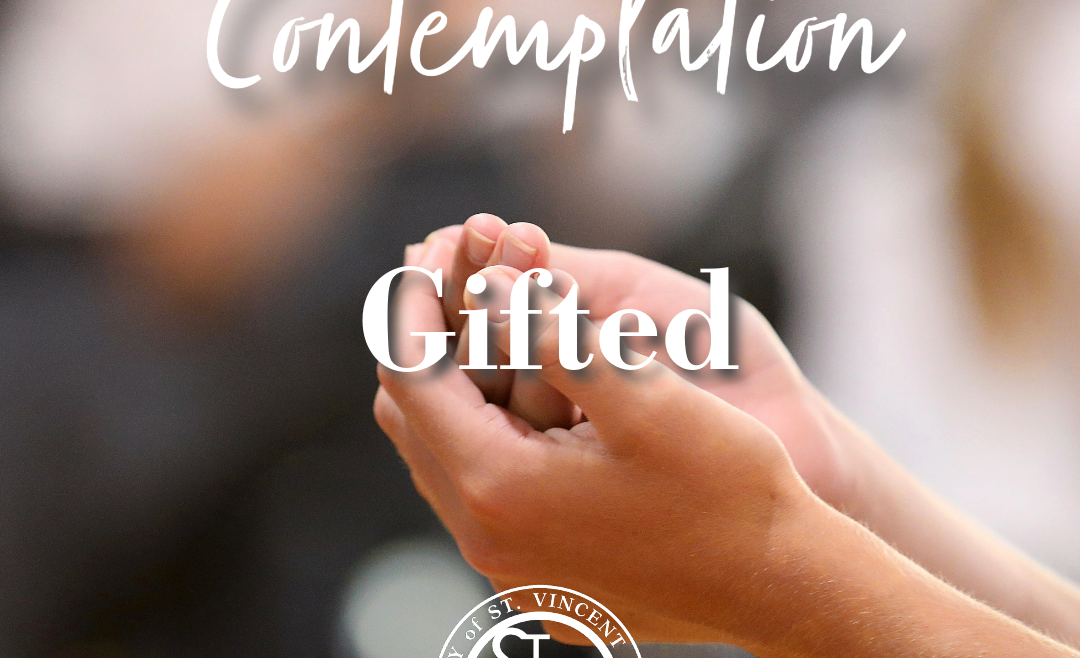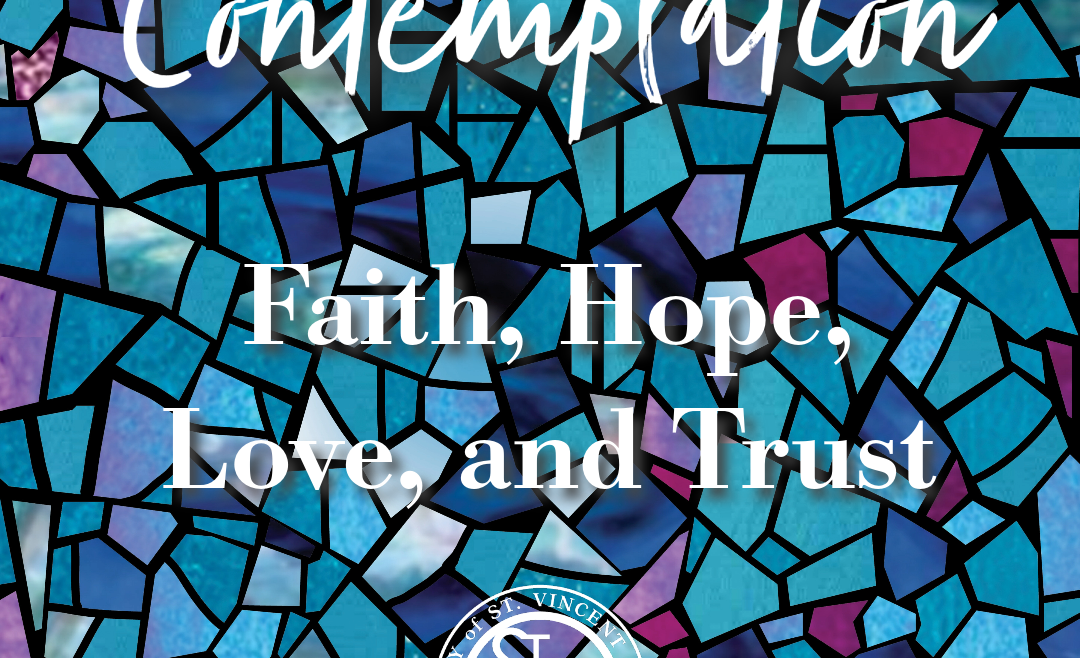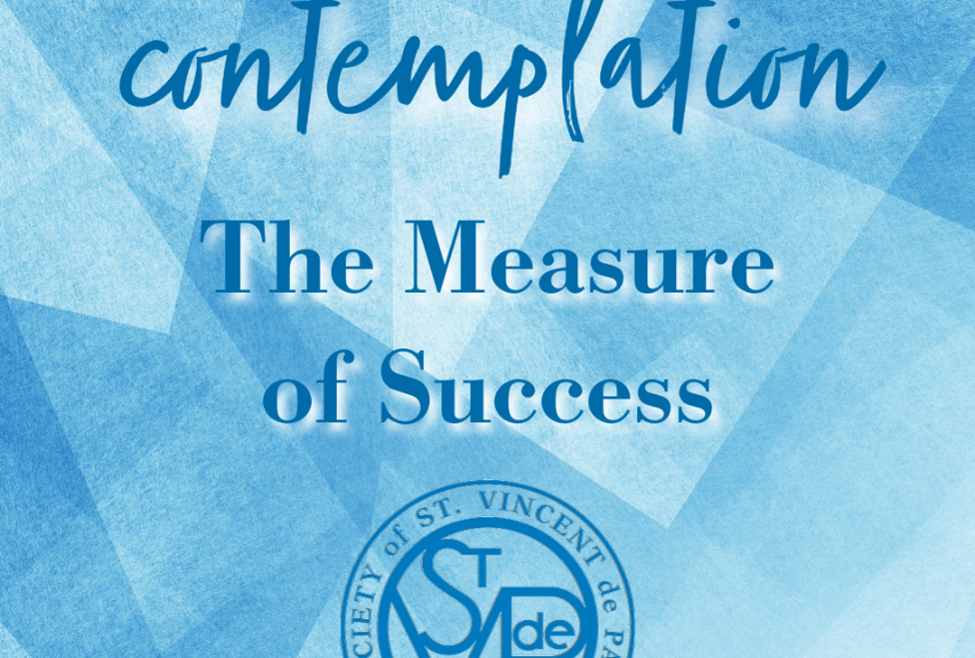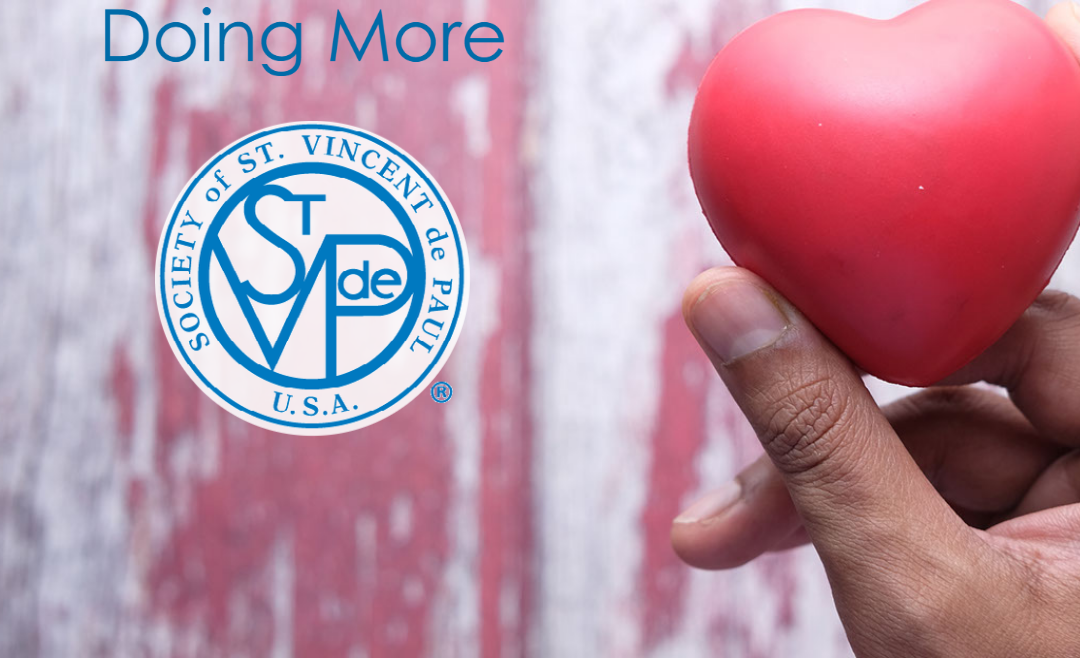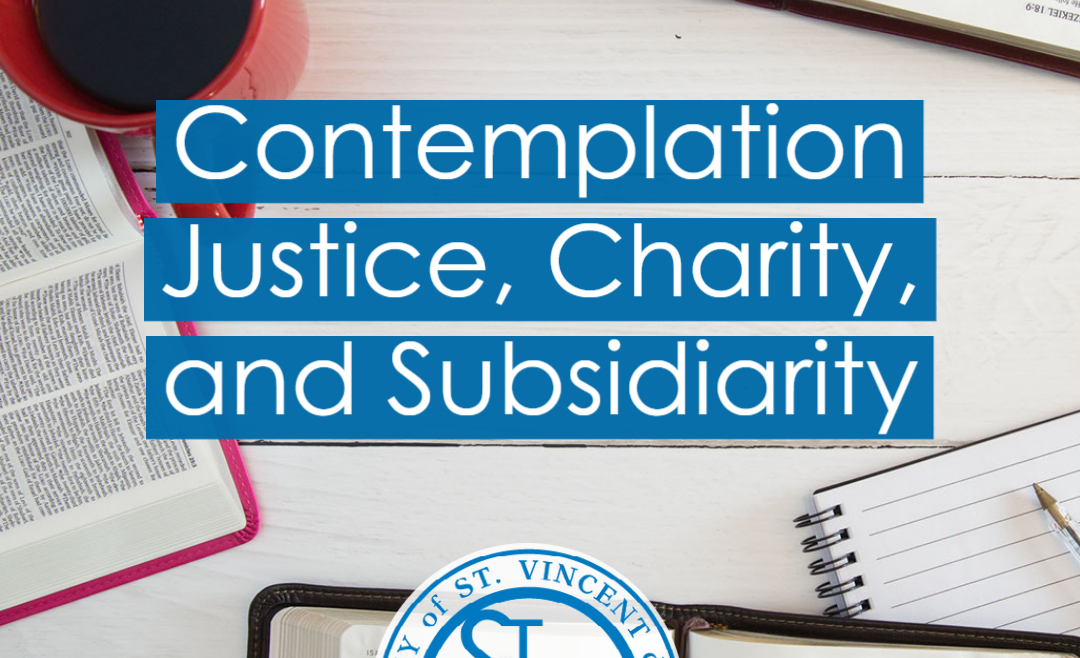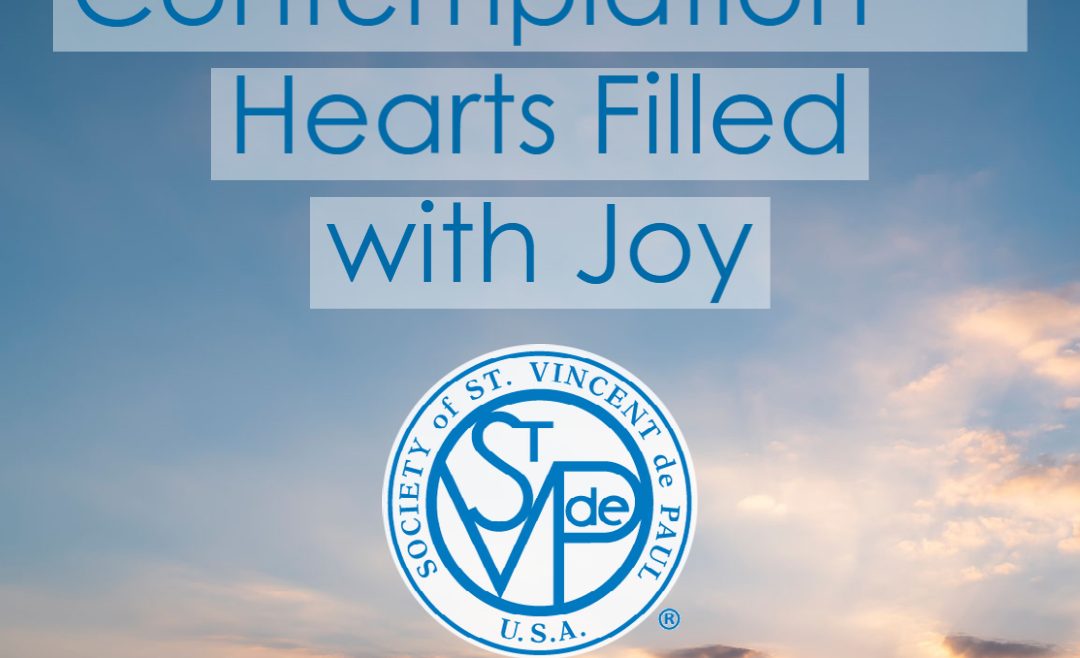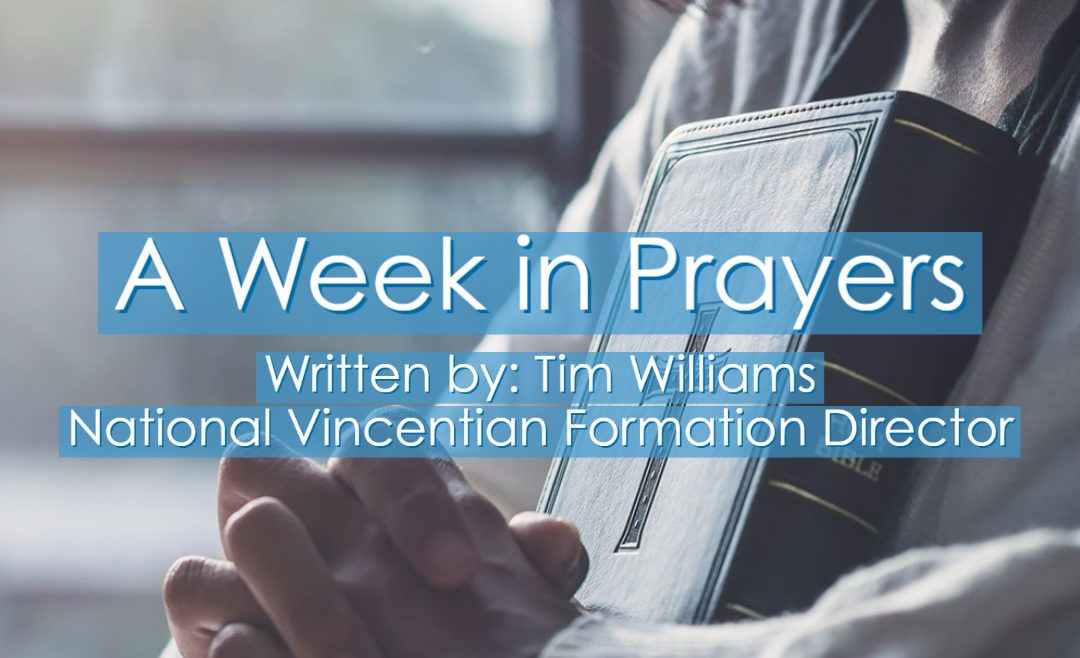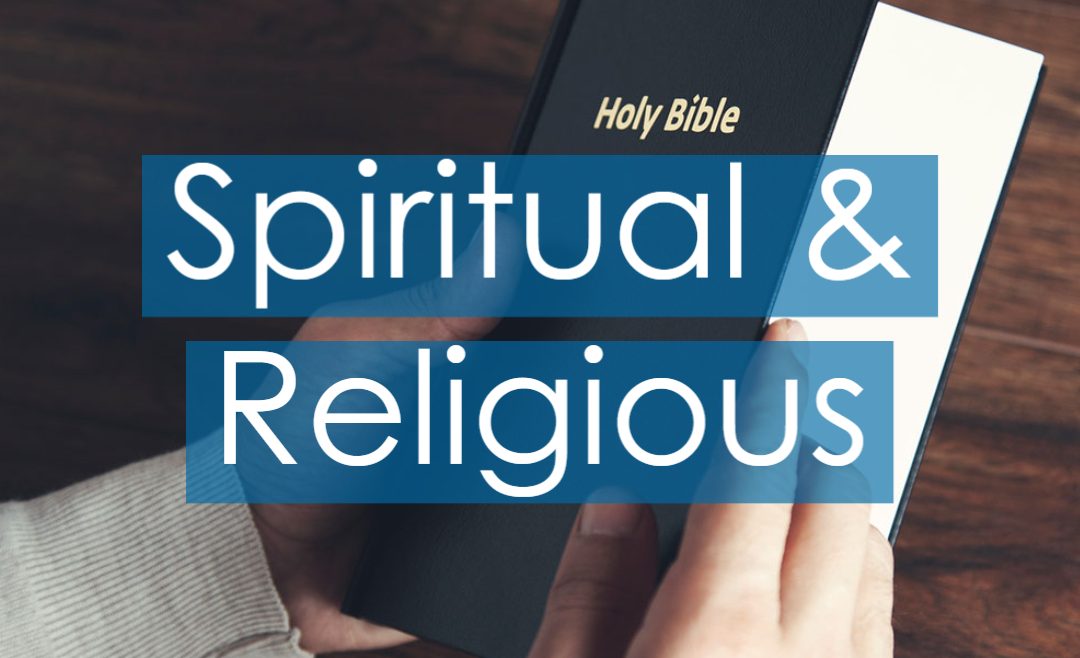As members of the Vincentian family, we share in the great charism of our patron, St. Vincent de Paul. A charism, our church teaches, “whether extraordinary or simple and humble [is a grace] of the Holy Spirit which directly or indirectly benefits the Church, ordered as they are to her building up, to the good of men, and to the needs of the world.” [CCC, 799] Indeed, the very word charism derives from the Greek cháris, meaning favor, or gift. This same word from the Greek is at the ultimate root of eucharist, meaning thankfulness.
Similarly, both grace and gratitude comes from the Latin grātia, which means a favor or gift. It should not be surprising that gifts are so closely tied to gratitude. After all, saying thank you is a basic social obligation when we receive gifts. Gifts are not payment of debt; they don’t come with stings attached. They are gratuitous (another word from grātia).
We express our gratitude for Christ’s greatest gift, His sacrifice on the cross, in our celebration of the eucharist. Like all gifts, His sacrifice is not something we earned, but was instead freely given. In the same way, our Vincentian charism, and our individual charisms, are gifts from the Holy Spirit, unmerited and freely given. More importantly, they are given in order that we might share them.
This understanding of our own gifts, “that all that God gives us is for others and that we can achieve nothing of eternal value without His grace”, is at the heart of our virtue of humility. [Rule, Part I, 2.5.1] This beautiful Vincentian charism, this gift of the Spirit, shared across four centuries by generations of priests, brothers, sisters, and lay people, is given to us to share.
We do this by offering our presence and material support purely as gifts to our neighbors in need, “never adopt[ing] the attitude that the money is [ours], or that the recipients have to prove that they deserve it.” [Manual, 23] And because the gifts we share – our time, our talents, our possessions, and ourselves – are ultimately not our gifts, but God’s, all thanks for them goes only to Him; all glory for our works goes only to Him.
So let us share freely of our gifts, recalling always the words of St. Louise de Marillac: “I praise God with all my heart for the blessings His goodness bestows upon your holy works. I beg you to be most thankful to Him for them because you must not believe that these graces are merited.” [SWLM, L.368]
Contemplate
Do I seek always to give thanks for my gifts, by giving gratuitously and freely, in imitation of Christ?
Recommended Reading
Spirituality of the Home Visit – use this journal to reflect on this aspect of your Home Visits.

